Grant Writing Classes: How to Kickstart Educational Innovation with Winning Proposals
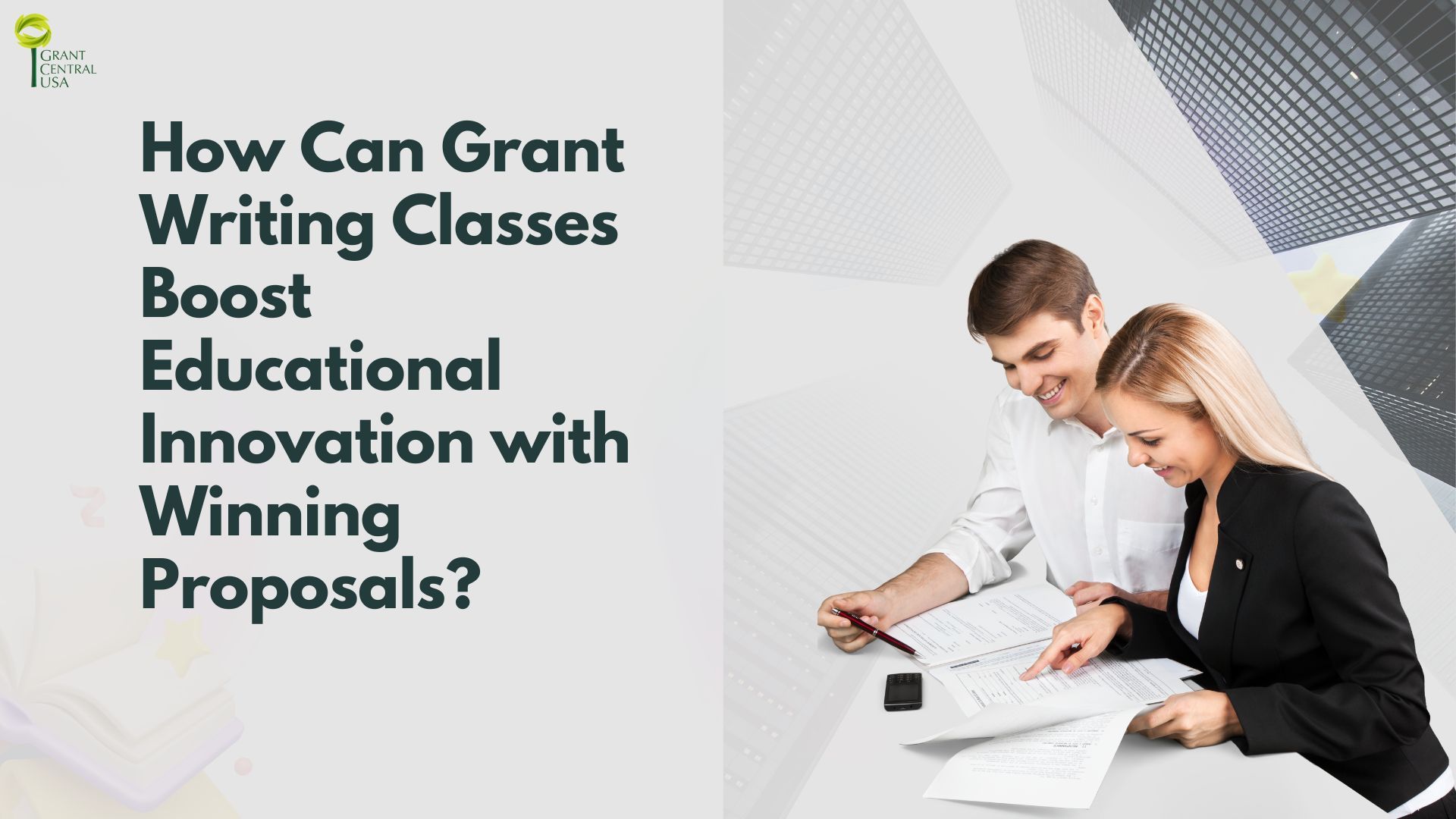
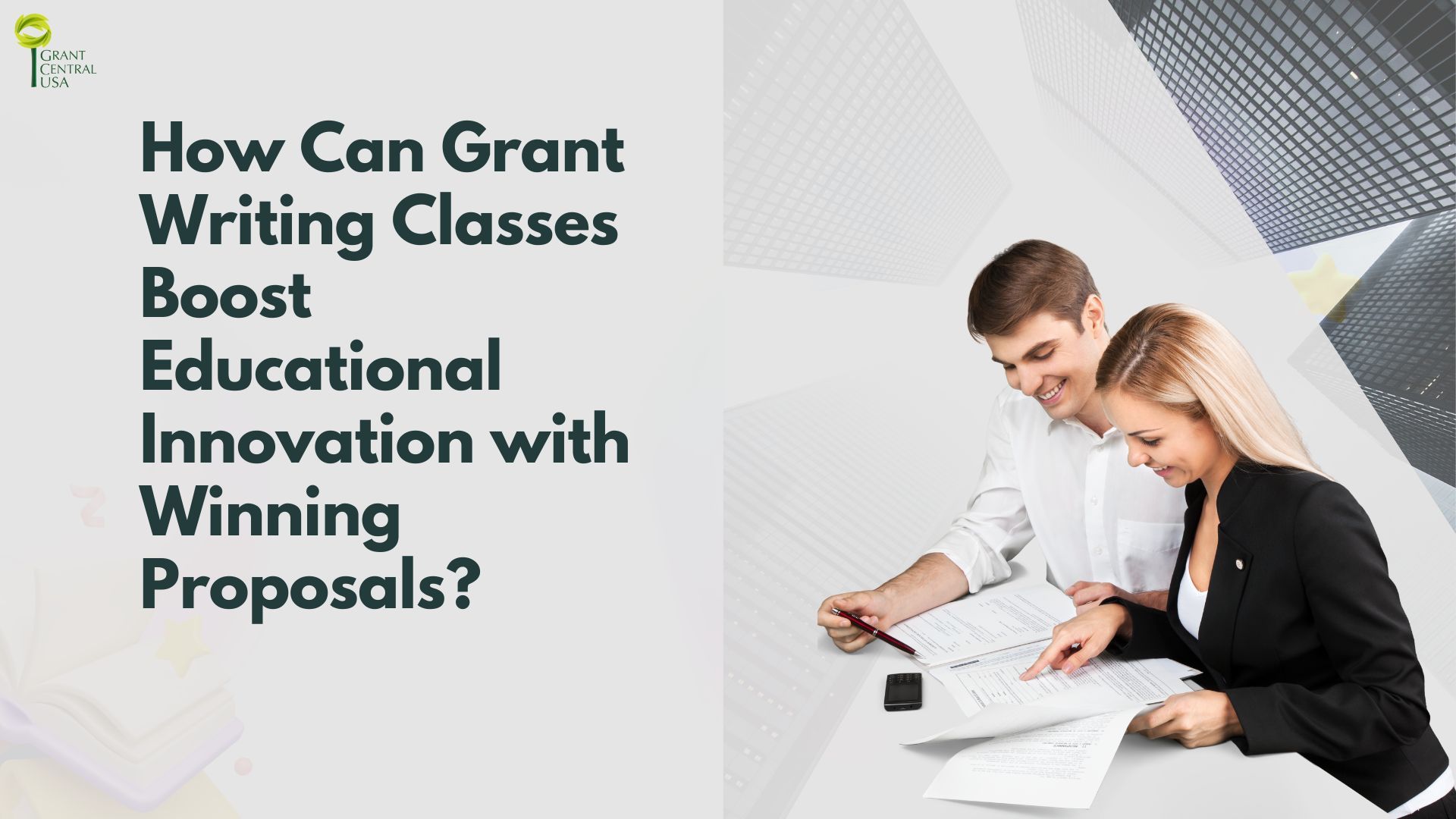
In the ever-evolving landscape of education, innovation is the key to unlocking the potential of students and educators alike. However, turning innovative ideas into reality often requires financial support. This is where grant writing comes into play. For educators looking to breathe life into their groundbreaking projects and classroom initiatives, grant writing classes offer a vital skill set. In this blog, we will explore the world of grant writing course "Grant Writing Classes: How to Kickstart Educational Innovation with Winning Proposals." We'll dive into the essential knowledge and strategies that these classes provide, shedding light on how educators can transform their innovative visions into successful grant-funded projects. Whether you're a seasoned educator or a fresh face in the field, this guide to grant writing unicorn will walk you through the steps to harness the power of grants and drive educational innovation forward.
What are the key benefits of taking grant writing classes for educators?
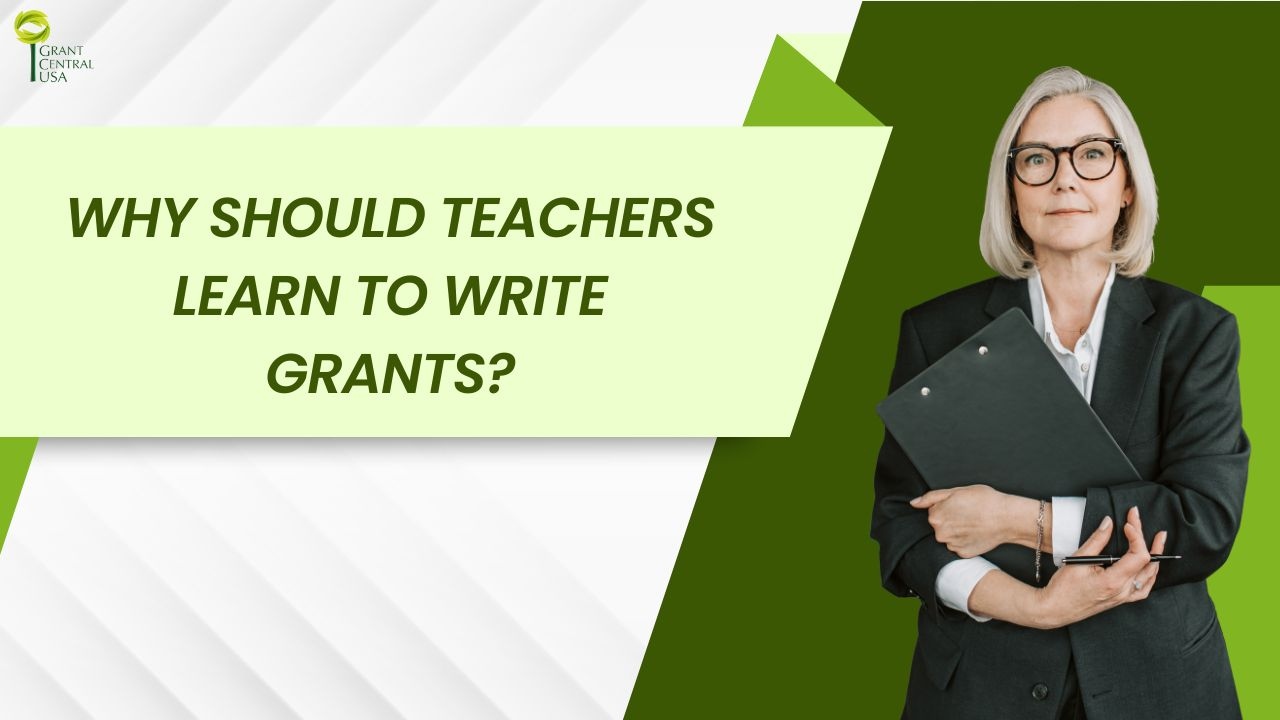
Grant writing classes are a valuable asset for educators, offering a range of benefits that can significantly impact their careers and the quality of education they provide. Here are five key advantages of grant writing certifications and course:
- Enhanced Funding Opportunities: Educators learn how to identify, apply for, and secure grants, increasing their access to crucial funding for innovative projects, classroom resources, and professional development.
- Improved Proposal Writing Skills: These classes equip educators with the skills needed to craft persuasive and well-structured grant proposals, boosting their chances of success in a competitive grant landscape.
- Time and Resource Efficiency: Educators learn to streamline the grant application process, saving valuable time and ensuring that resources are allocated effectively.
- Professional Growth: Grant writing skills enhance educators' professional portfolios, making them more attractive to schools and institutions and opening doors to career advancement.
- Innovation and Impact: With funding secured through grant writing classes, educators can bring their innovative ideas to life, leading to positive changes in the classroom and broader educational community.
How can educators identify the most suitable grant opportunities for their innovative projects?
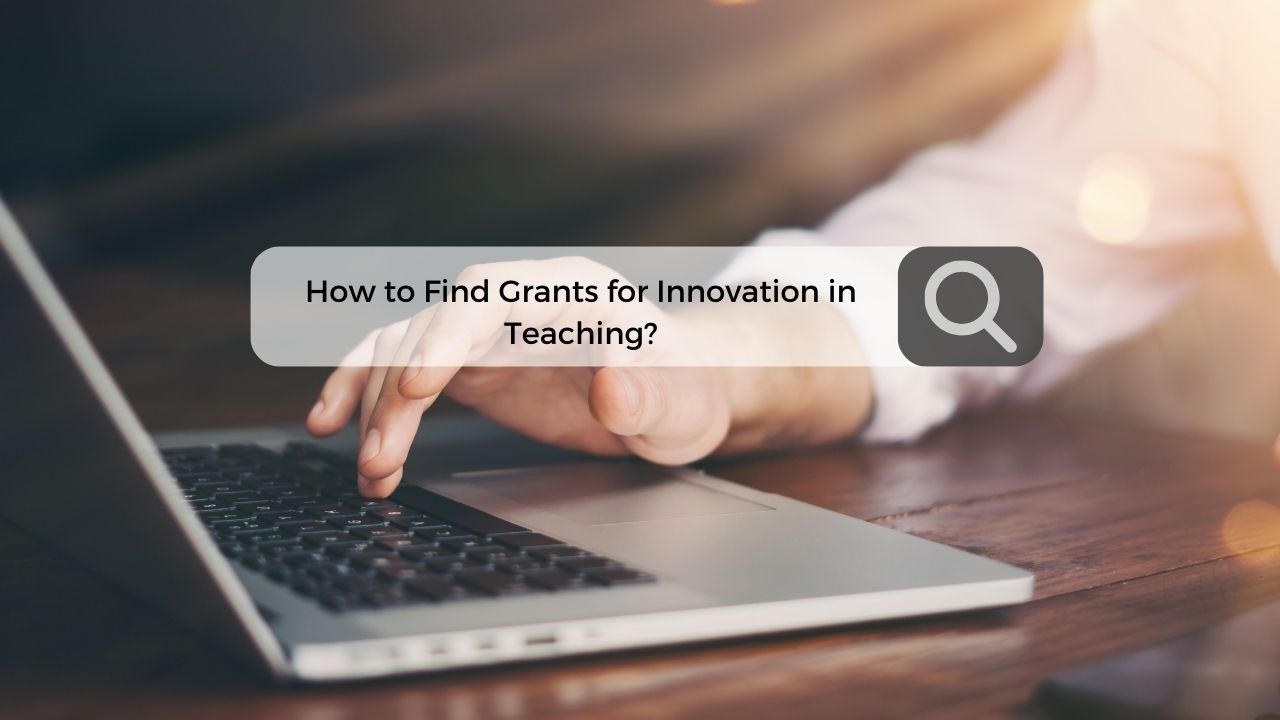
Educators can identify the most suitable grant opportunities for their innovative projects by embarking on a systematic journey of research and alignment. It begins with a clear definition of project goals and needs, enabling educators to pinpoint the core objectives they wish to achieve. Next, identifying the target audience helps specify the beneficiaries of the project, a crucial element for matching with appropriate grants. Comprehensive research is key, involving exploration of government agencies, foundations, corporations, and other educational institutions and associations, with online grant search engines and databases offering valuable filtering options. Careful reading of grant guidelines is essential to ensure alignment with project objectives, and assessing grant history provides insight into the grantor's preferences. Open communication with grantors, networking with peers who have secured grants, and considering local options further aid in pinpointing suitable grants. Educators must also understand the application process and be prepared to customize their proposals to fit the specific priorities of the grant opportunity. Seeking professional development through grant writing classes can enhance their proposal-writing skills, ultimately increasing their likelihood of securing funding for their innovative educational projects.
What are the essential components of a winning grant proposal, and how are they taught in grant writing classes?
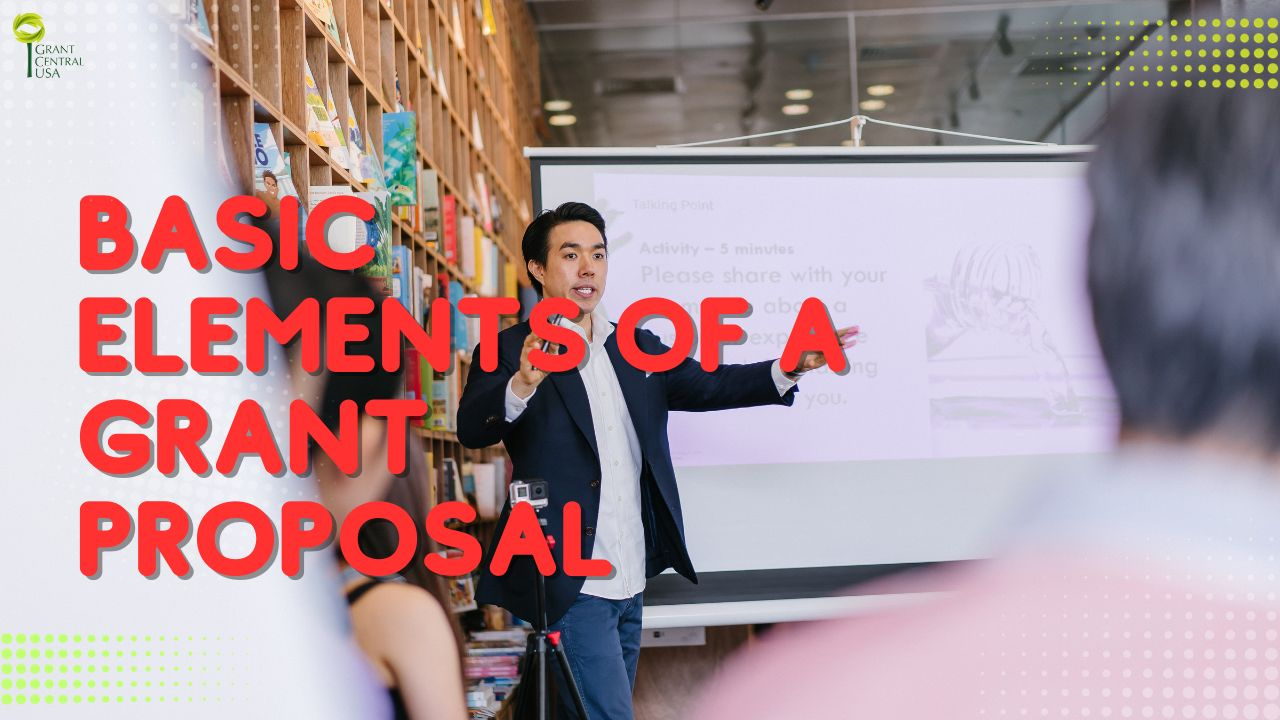
Winning grant proposals are built on a solid foundation of essential components. Grant writing classes impart the knowledge and skills necessary to create compelling and successful grant proposals. Here are eight key components to write grant proposals and how they are taught in these classes:
1. Executive Summary: Grant writing classes teach participants to craft a concise yet captivating executive summary that encapsulates the project's essence, conveying its importance and potential impact effectively.
2. Need Statement: Educators learn to formulate a clear and data-supported need statement, highlighting the problem or need their project addresses, emphasizing its significance, and providing compelling evidence.
3. Project Description: Classes guide participants in creating a comprehensive project description, including project goals, objectives, and a detailed plan for its implementation, ensuring it aligns with the grantor's priorities and mission.
4. Methods and Strategies: Grant writing classes focus on developing feasible and well-reasoned methods and strategies, showing how the project activities will lead to the desired outcomes, thus securing the grantor's confidence in the project's success.
5. Budget and Justification: Educators are taught how to build a comprehensive budget that includes all necessary expenses. Grant writing classes emphasize the importance of justifying each line item, ensuring that costs are reasonable and essential to the project's success.
6. Evaluation Plan: Classes help participants design an effective evaluation plan that clearly outlines how the project's success will be measured and assessed against specific criteria, ensuring transparency and accountability.
7. Sustainability Plan: Educators learn to draft a sustainability plan, demonstrating how the project will continue to thrive beyond the grant period, underlining the long-term impact and value of the initiative.
8. Clarity and Persuasion: Grant writing classes place a strong emphasis on writing persuasively while maintaining clarity and conciseness. Educators are taught how to communicate the project's significance in a way that engages the reader and conveys its value effectively.
These essential components, when crafted skillfully, create a compelling grant proposal that stands out to grantors and maximizes the chances of securing funding for innovative projects. Grant writing classes provide educators with the tools and expertise to excel in each of these areas, ultimately helping them become more successful grant proposal writers.
What specific strategies can educators learn in these classes to increase their chances of securing grant funding for educational innovation?
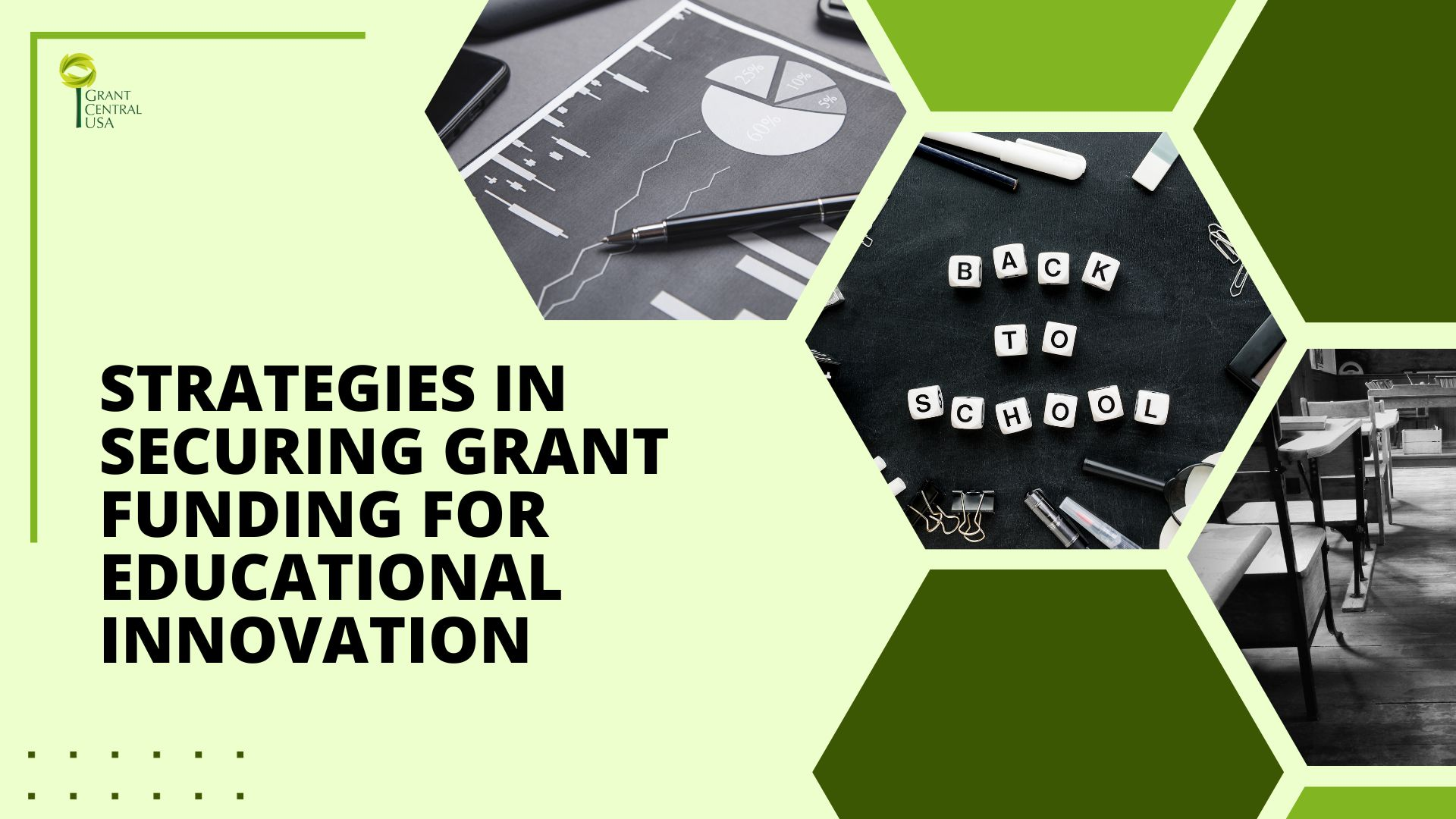
Educators who aspire to secure grant funding for their innovative educational projects can significantly enhance their chances through specialized grant writing classes. These classes provide a structured learning environment where educators can acquire five specific strategies to maximize their prospects of obtaining and writing grants used for educational innovation.
1. Research and Grant Identification: Grant writing classes teach educators how to conduct thorough and targeted research to identify grants that are a perfect fit for their projects. Educators learn to explore various sources, databases, and online resources, enabling them to pinpoint the best grant opportunities that align with their specific goals. This strategy ensures that educators invest their time and effort in opportunities that have a high likelihood of success.
2. Effective Proposal Writing: Crafting a compelling grant proposal is a critical skill taught in these classes. Educators learn how to structure their proposals, clearly articulate their project's objectives and outcomes, and persuasively convey how their project aligns with the priorities and objectives of the grantor. They are trained to use persuasive language and storytelling techniques to engage the reader and highlight the significance of funding research on their innovative project.
3. Budget Development and Justification: Educators acquire the skills to create detailed and well-justified budgets that accurately represent their project's financial needs. Grant writing classes emphasize the importance of justifying each budget item, ensuring that all expenses are reasonable and directly tied to the project's success. This strategy not only enhances the credibility of the proposal but also instills confidence in grantors regarding the responsible use of funds.
4. Networking and Collaboration: Collaboration is a key strategy emphasized in grant writing classes. Educators are encouraged to build and leverage professional networks within the educational and funding communities. By establishing collaborative partnerships with other educators, schools, other nonprofit sector organizations, or community stakeholders, educators can strengthen their grant applications. These partnerships can not only enhance the proposal but also increase the project's potential for success and broader impact.
5. Evaluation and Impact Assessment: Grant writing classes highlight the importance of designing effective evaluation plans. Educators in grant writing basics learn to define clear, measurable indicators for success and create an evaluation framework that demonstrates how the project's impact will be assessed. This strategy enables educators to provide grantors with a roadmap for measuring the success of the funded project, which is essential for accountability and showcasing the tangible outcomes of their educational innovation.
Incorporating these five specific strategies into their grant writing certificate and-seeking efforts equips educators with the knowledge and skills to navigate the competitive world of grant applications successfully. By identifying the right opportunities, writing compelling proposals, developing responsible budgets, fostering collaborations, and demonstrating a clear plan for evaluation, educators who develop grant writing skills can significantly enhance their chances of securing grant funding for their innovative educational projects, making a meaningful impact on the learning experiences of students and the broader educational community. Grant writing classes serve as a valuable resource, empowering educators to turn their visionary projects into reality.
Tips and tricks Educators gain from grant writing classes to stand out in a competitive grant application process?
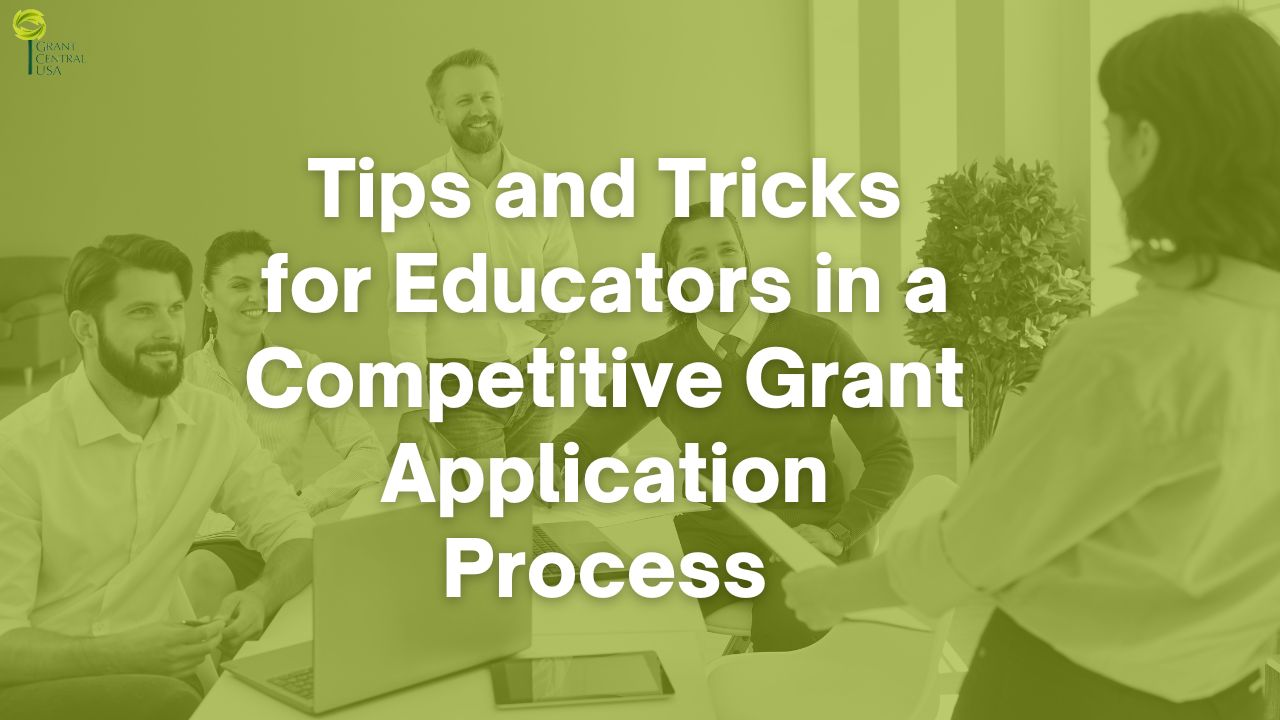
In the realm of education, securing grant funding for innovative projects can be a game-changer, driving transformative experiences for students and teachers alike. Yet, in a landscape where competition for grants is fierce, educators need every advantage they can get to stand out in the grant application process. This is where grant- writing courses and grant management classes come into play, offering valuable tips and tricks to help educators elevate their proposals and improve their chances of success.
1. Strategic Grant Selection
Grant writing classes impart the wisdom of strategic grant writing expert and selection. Educators learn to identify grants that closely align with the goals and objectives of their educational innovation projects. By focusing their efforts on grants that are the best fit, they increase the chances of a successful match.
2. Strong Projct Narrative
Crafting a compelling project narrative is a cornerstone of grant writing classes. Educators discover the power of a well-structured narrative that clearly articulates the problem or opportunity, offers a robust solution, and vividly paints a picture of the anticipated impact.
3. Demonstrating Need
To stand out in the grant application process, educators must master the art of demonstrating need. Grant writing classes provide guidance on presenting solid evidence of the need for their projects. This includes using data, statistics, and real-life examples to underscore the issues they aim to address.
4. Personalized Proposals
Educators are taught to tailor each grant proposal to the specific requirements and priorities of the grantor. Personalization goes a long way in showing a genuine commitment to the funding organization's mission and objectives.
5. Engaging Executive Summary
Grant writing classes emphasize the significance of creating an executive summary that engages the grantor from the very beginning. Educators certified grant writer to learn to craft a summary that not only provides grant writer with an overview of the project but also captivates the reader, compelling them to delve further into the proposal.
6. Budget Clarity
Clarity in budget development is a core aspect of these classes. Educators acquire the skills to create transparent and realistic budgets, with every expense carefully justified and directly linked to the project's success. This transparency builds trust and credibility with grantors.
7. Strong Evaluation Plan
Grant writing classes stress the importance of a strong evaluation plan. Educators learn how to design a robust plan that outlines how they will measure the success of the project and demonstrate its impact. This commitment to accountability and assessment enhances the proposal's overall strength.
8. Peer Review and Feedback
Grant writing classes often incorporate peer review sessions where educators can receive constructive feedback on their proposals. These sessions provide invaluable insights advanced grant writing, helping educators refine their proposals, correct any weaknesses, and identify areas for improvement.
In a competitive grant application process, these tips and tricks from grant writing class become invaluable tools for educators seeking to turn their innovative educational visions into reality. Armed with the knowledge and skills acquired in grant writing classes, educators can confidently navigate the grant-seeking journey, effectively communicate the worth of their projects, and increase their chances of securing funding that will propel educational innovation forward. These classes, ultimately, serve as beacons of hope, guiding educators toward the resources they need to create meaningful and lasting impacts within their classrooms and the broader educational community.
What are the potential challenges and obstacles that educators might face when writing grant proposals, and how can grant writing classes address them?
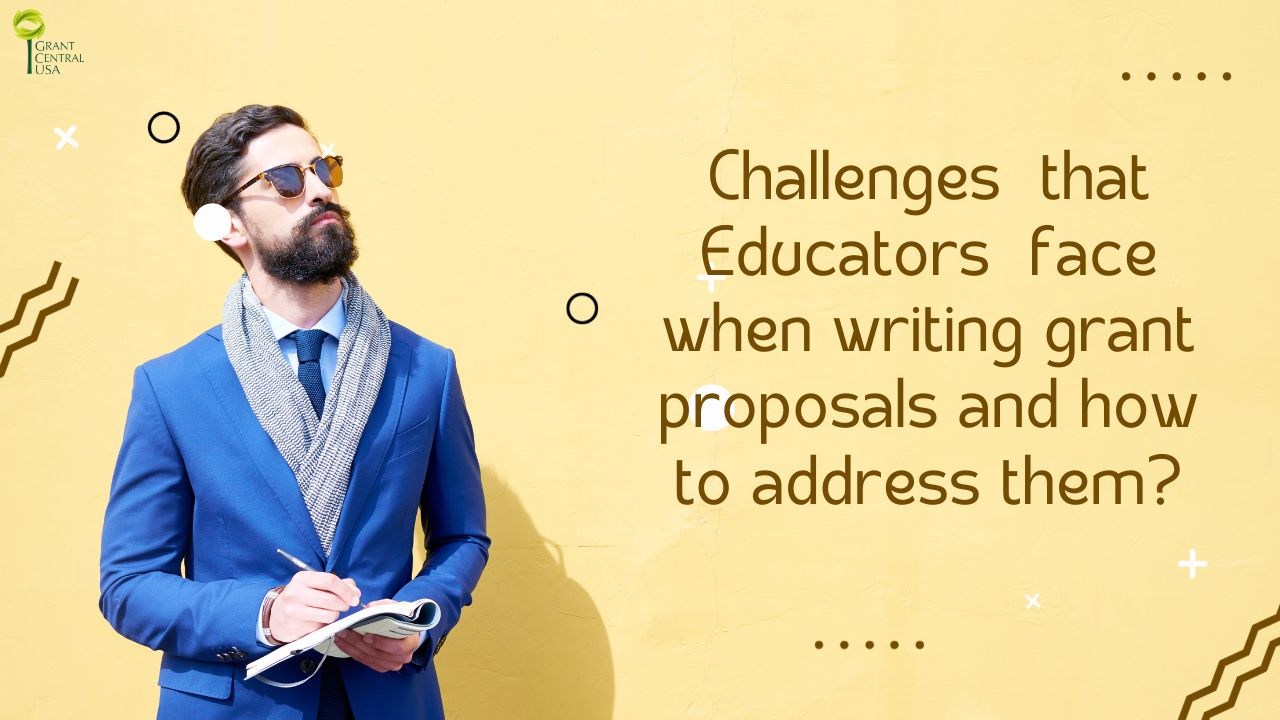
Writing grant proposals can be a daunting task for educators, as they often encounter various challenges and obstacles along the way. Grant writing classes are specifically designed to address these issues and equip educators with the necessary skills to overcome them.
One common challenge is Lack of Experience: Many educators are not familiar with the intricacies of grant writing, making the process seem complex and overwhelming. Grant writing classes provide a structured environment for novices to learn the fundamentals, understand best practices, and gain hands-on experience through practical exercises.
Another challenge is Competition: The grant landscape is highly competitive, with numerous educators vying for limited funding opportunities. Grant writing classes teach participants how to strategically identify grants that align with their projects and craft persuasive proposals that stand out in the crowd.
Budget Development can also be a stumbling block. Creating realistic budgets and justifying every expense is a skill educators must master. Grant writing classes provide comprehensive guidance on budget development and offer insights into ensuring that funds are allocated efficiently and responsibly.
Additionally a professional grant writer, the Complex Proposal Structure can be daunting. Grant proposals often require a specific structure, including sections like the needs statement, project description, and evaluation plan. Grant writing classes break down these components and guide educators in constructing well-organized, compelling proposals.
Time Management is another significant obstacle. Educators have busy schedules, and grant writing can be time-consuming. Grant writing classes emphasize the importance of managing time effectively and provide strategies for balancing grant writing with other responsibilities.
Finally, educators often face challenges related to Understanding Grantor Expectations and Guidelines. Grant writing classes offer insight into deciphering grantor expectations, which can vary from one funding source to another. Understanding these expectations and adhering to guidelines is critical to the success of a grant proposal.
In essence, grant writing classes are a vital resource for educators looking to overcome these challenges. They provide a structured learning environment, expert guidance, and practical exercises to help educators build confidence, develop essential skills, and navigate the grant writing process effectively, ultimately increasing their chances of securing funding for their educational initiatives.
What resources and support do grant writing classes typically provide to help educators throughout the grant application process?
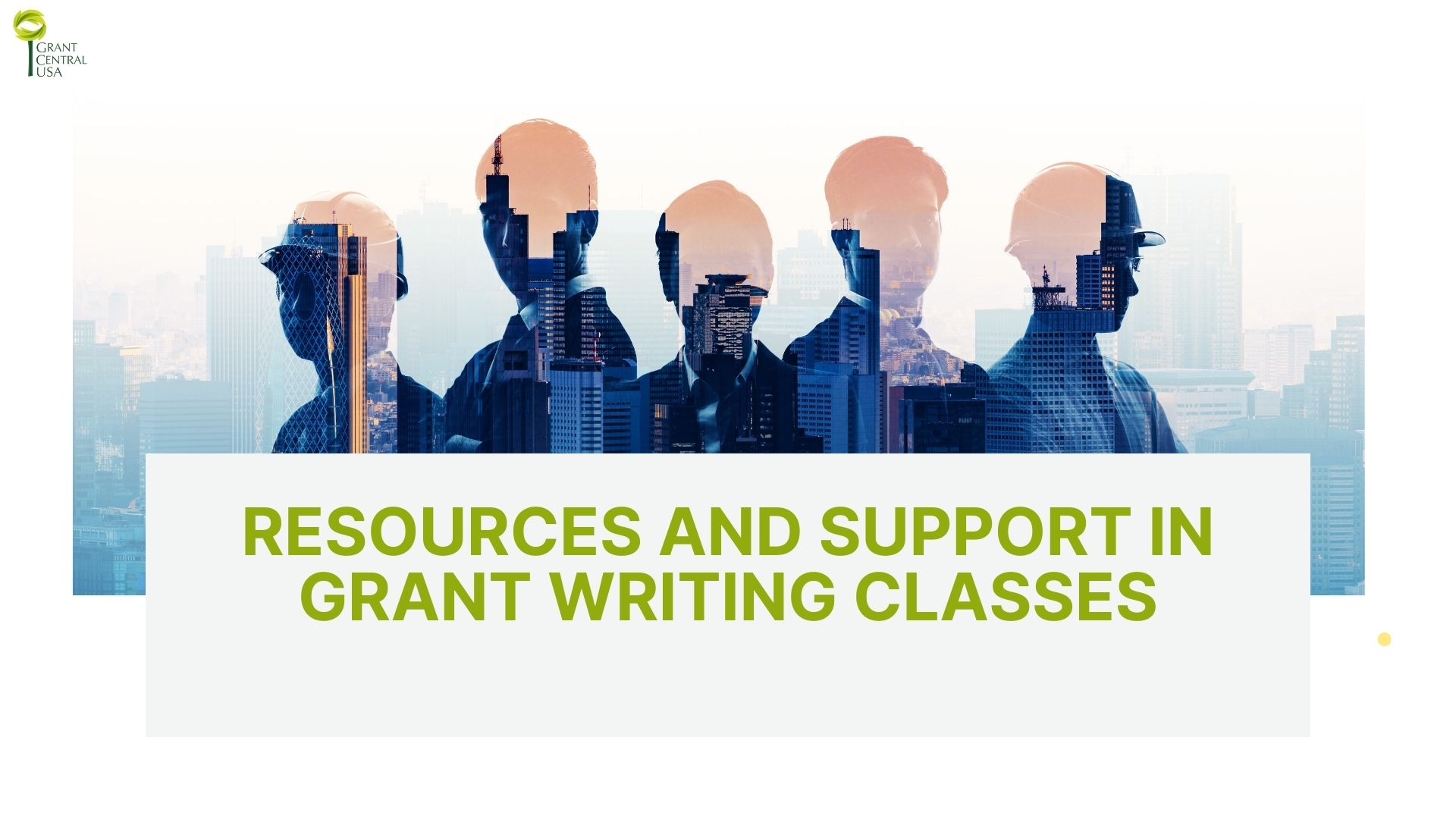
Grant writing classes typically provide several resources and forms of support to assist educators throughout the grant application process. Here are five common resources and types of support:
1. Expert Guidance
Educators in grant writing classes benefit from the expertise of experienced grant writers and instructors who guide them through the intricacies of grant writing. Instructors offer insights, best practices, and real-world examples best grant writing, providing invaluable knowledge to participants.
2. Structured Curriculum
Grant writing classes are organized with a structured curriculum that covers essential topics for grant writing certification, including needs assessment, grant proposal development,, budgeting, and evaluation planning. This organized approach ensures that educators gain a comprehensive understanding of the grant writing process.
3. Sample Proposals
Many grant writing classes provide sample grant proposals as references and templates. These samples offer educators practical examples of well-crafted and effective grant proposals, helping them understand the structure and content expected in their own grant applications.
4. Peer Review and Feedback
Educators often engage in peer review sessions, where they exchange and critique each other's proposals. Constructive feedback from peers and instructors helps participants identify strengths and areas for improvement, enhancing the quality of their proposals.
5. Discussion and Q&A
Grant writing classes encourage discussion and provide opportunities for educators to ask questions and seek clarification on various aspects of grant writing. This interactive environment fosters learning and supports participants in addressing specific concerns or challenges.
These resources and types of support collectively contribute to a more effective learning experience and better prepare educators for the grant application process. They empower educators to develop compelling proposals for winning grants, and increase their chances of securing funding for their innovative educational projects.
What are the advantages of taking online grant writing classes for educators, and how do they compare to in-person classes?
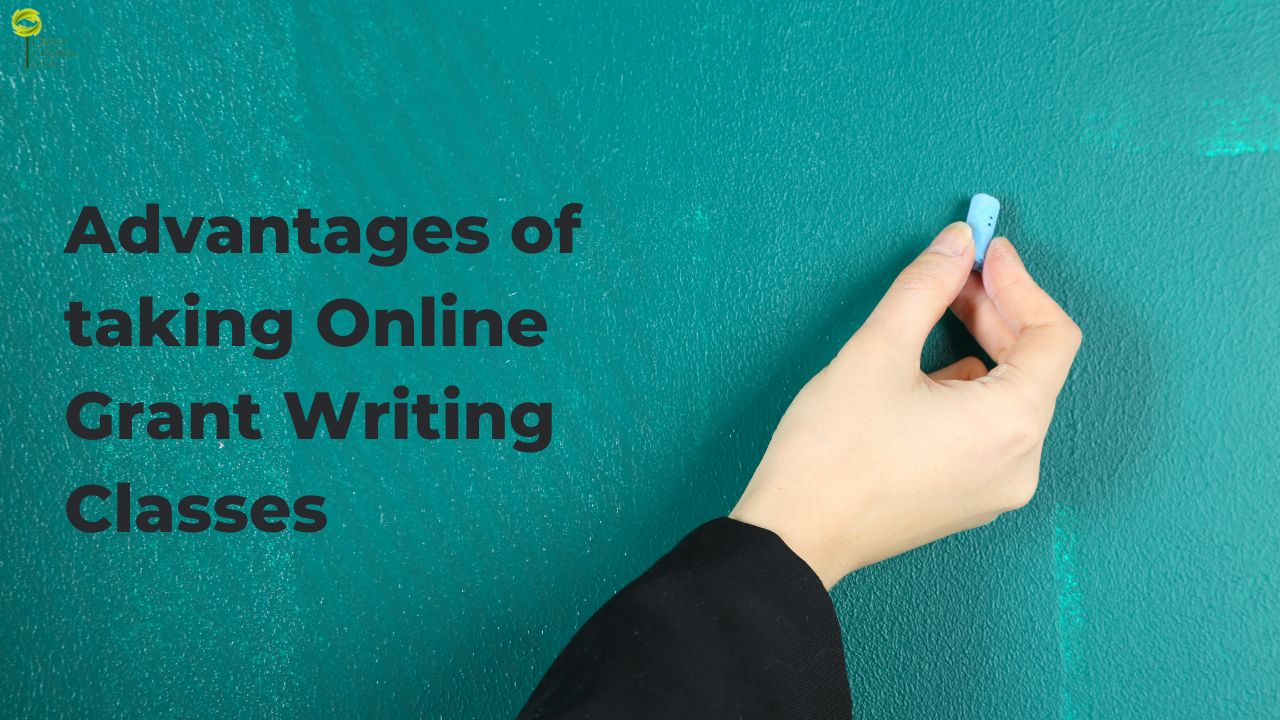
Taking online grant writing classes can offer several advantages for educators, particularly when compared to in-person classes. Here are five key advantages:
1. Flexibility and Accessibility
Online and best grant writing courses and classes provide educators with the flexibility to learn at their own pace and on their own schedule. This accessibility is especially beneficial for educators with busy teaching and personal lives, as it allows them to balance professional development with their existing commitments.
2. Geographic Independence
Online classes remove geographic constraints. Educators can access high-quality certificate in grant writing, instruction and resources from anywhere in the world, eliminating the need to travel to physical class locations. This makes it possible for educators in remote or underserved areas to access professional development opportunities.
3. Diverse Learning Resources
Online grant writing classes often offer a wealth of digital resources, including sample proposals, templates, and access to grant databases. Educators can take advantage of these diverse resources to enhance their learning and improve their grant writing skills.
4. Cost-Effective
In many cases, online classes are more cost-effective than in-person options. Educators can save on expenses related to travel, accommodation, and materials. Additionally, some online courses are available for free or at a reduced cost, making professional development more accessible.
5. Self-Paced Learning
Online and grant writing courses and classes often provide self-paced learning options, allowing educators to progress through the material at their own speed. This flexibility enables participants to review challenging topics or move quickly through familiar content, tailoring the learning experience to their needs.
While online grant writing classes offer these advantages, it's important to note that they may also have some limitations. In-person classes, for example, provide more immediate access to instructors and in-person collaboration with peers. The choice between an online grant writing course course and in-person classes often depends on educators' individual preferences, needs, and circumstances.
Are there specific grant opportunities or programs tailored for different subject areas, and how can educators find relevant options?
Yes, there are specific grant opportunities and programs tailored for different subject areas in education. Many funding organizations and foundations offer grants that focus on particular subjects or areas of study. To find relevant grant options, educators can follow these steps:
1. Identify the Educational Focus
First, educators should clearly define the subject area or educational focus of their project. Whether it's STEM education, arts, literacy, special education, or any other specific field, a well-defined focus is essential.
2. Use Online Grant Databases
Utilize online grant databases and search engines that allow users to filter grants based on various criteria, including subject area. Websites like GrantStation, Grants.gov, Foundation Center, and GrantWatch provide searchable databases to find grants specific to the subject area.
3. Explore Educational Associations
Many subject-specific educational associations and organizations offer grants and funding opportunities related to their field. For instance, the National Science Teachers Association (NSTA) provides grants for science educators, and the National Council of Teachers of English (NCTE) offers grants for language arts and literacy initiatives. Educators should consider exploring the websites of relevant educational associations.
4. Check Government Initiatives
Government agencies often offer grants for educational programs and projects, and government grants, some of which the federal grants may be subject-specific. Educators can review the websites of local, state, and federal education departments to find relevant grant opportunities.
5. Consult Grantors and Program Officers
If educators have questions about a specific grant opportunity or need guidance on subject-specific grants, they should not hesitate to reach out to grantors or program officers. These individuals can provide valuable information and clarification.
By following these steps and conducting comprehensive research, educators can identify grant opportunities tailored to their specific subject areas and increase their chances of securing funding for their subject-specific educational initiatives.






